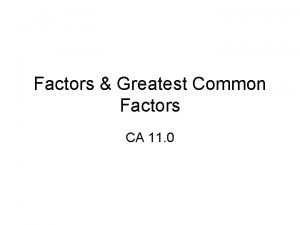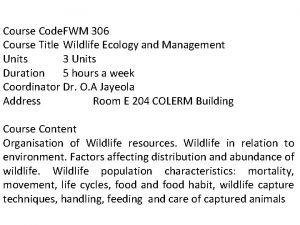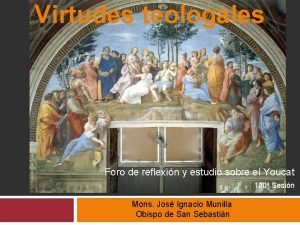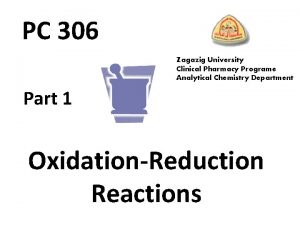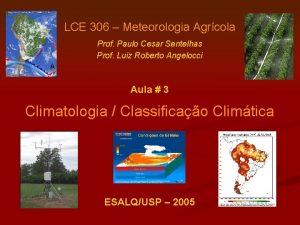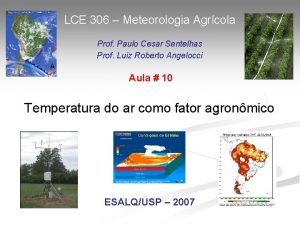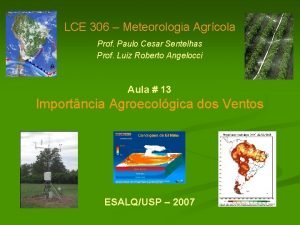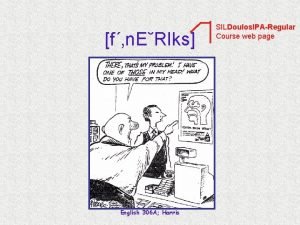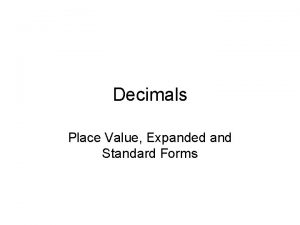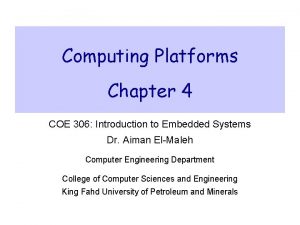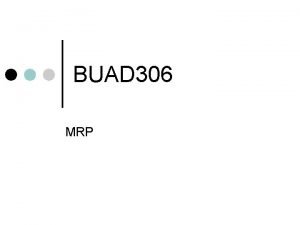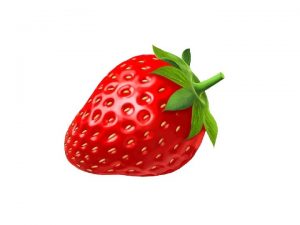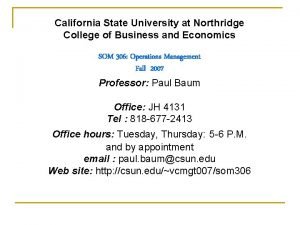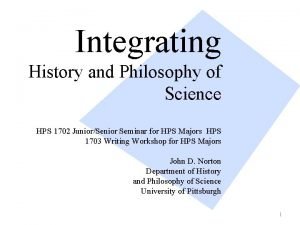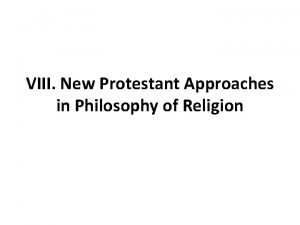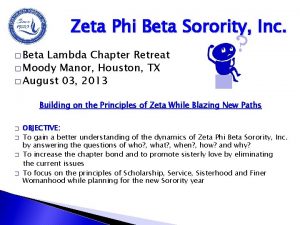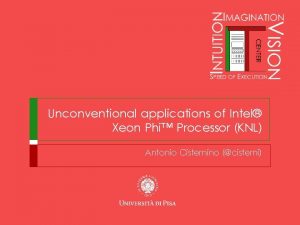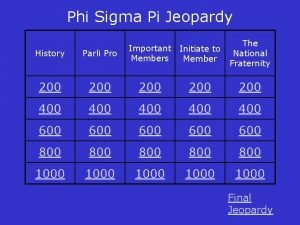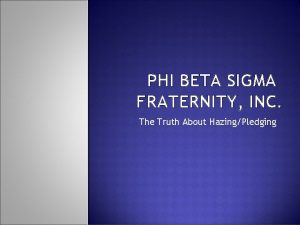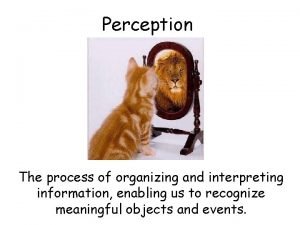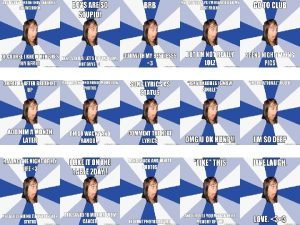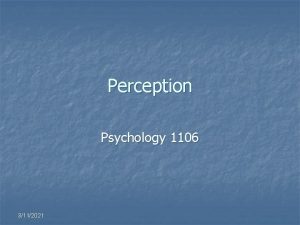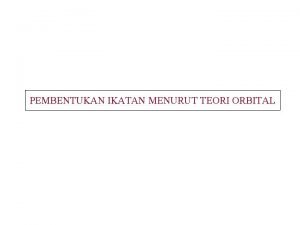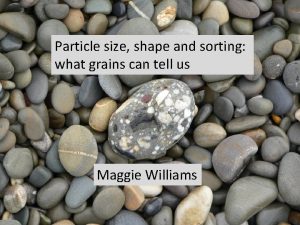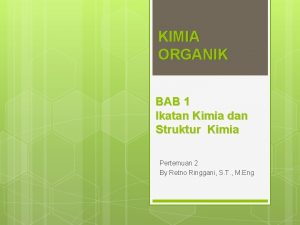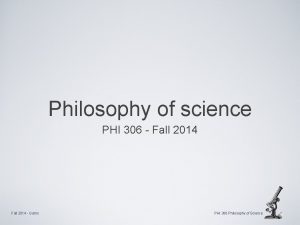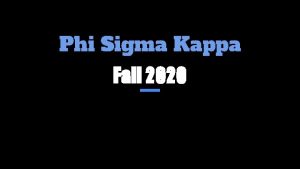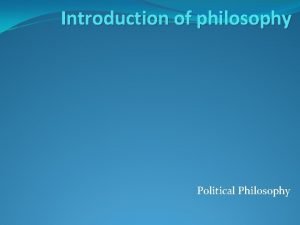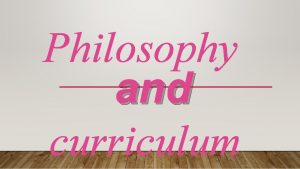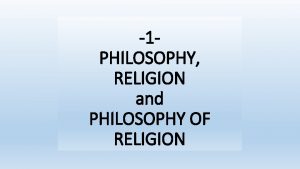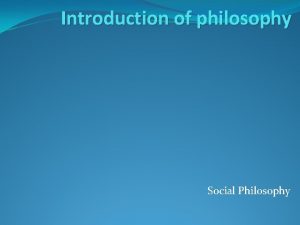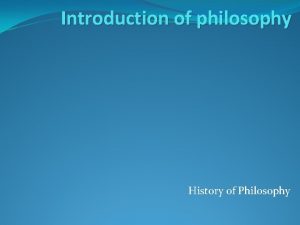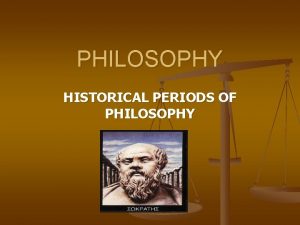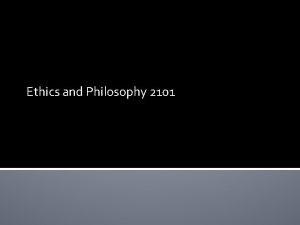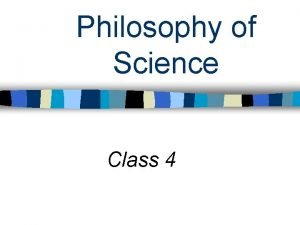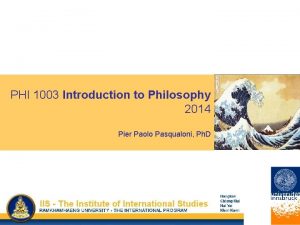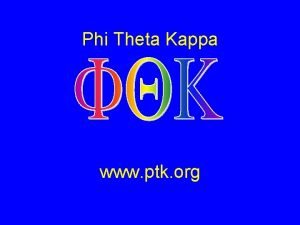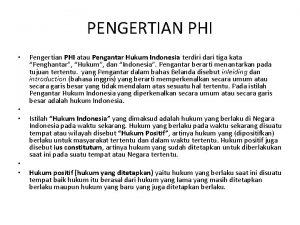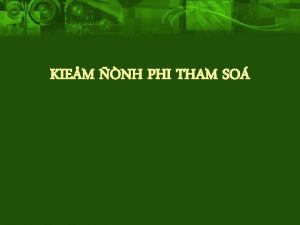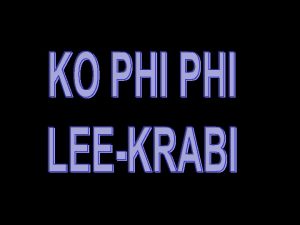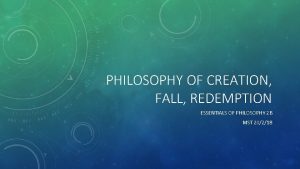PHILOSOPHY OF SCIENCE PHI 306 Fall 2014 Garns












![POPPER [A] theory of induction is superfluous. It has no function in a logic POPPER [A] theory of induction is superfluous. It has no function in a logic](https://slidetodoc.com/presentation_image/0047c599d6dd6cab0564dc74f0f30f60/image-13.jpg)





















- Slides: 34

PHILOSOPHY OF SCIENCE PHI 306 - Fall 2014 - Garns PHI 306 Philosophy of Science

CONFIRMATION • Hume and the Problem of Induction • Hempel and the Hypothetico-Deductive Model • Goodman and the New Riddle • Quine and the Dogmas of Empiricism • Probability and Bayes Fall 2014 - Garns PHI 306 Philosophy of Science

CONFIRMATION • What could it mean for an observation to confirm a theory? • The psychological question: I am in fact more inclined to believe theory; confidence • The epistemological question: I am justified in attaching more credibility to theory; warrant Fall 2014 - Garns PHI 306 Philosophy of Science

DEDUCTION • The formal structure of valid arguments guarantees that the conclusion is true if the premises are true. • Solid epistemic ground • Avoid psychologism • But we don’t deduce theories from observations. Theories always say more (carry more information) than the observations. Fall 2014 - Garns PHI 306 Philosophy of Science

INDUCTION • • • No necessary connection between premises and conclusion. What is the relation between premises and conclusion? The reasoning amplifies the information presented in the premises. Fall 2014 - Garns I observe one swan and it is white. I observe a second swan and it is white. I observe a third swan and it is white. So, (it is likely that) all swans are white. All the swans I’ve observed so far have been white. So, (it is likely that) the next swan I observe will be white. PHI 306 Philosophy of Science

RUSSELL’S CHICKEN Domestic animals expect food when they see the person who feeds them. We know that all these rather crude expectations of uniformity are liable to be misleading. The man who has fed the chicken every day throughout its life at last wrings its neck instead, showing that more refined views as to the uniformity of nature would have been useful to the chicken. But in spite of the misleadingness of such expectations, they nevertheless exist. The mere fact that something has happened a certain number of times causes animals and men to expect that it will happen again. Thus our instincts certainly cause us to believe the sun will rise tomorrow, but we may be in no better a position than the chicken which unexpectedly has its neck wrung. We have therefore to distinguish the fact that past uniformities cause expectations as to the future, from the question whethere is any reasonable ground for giving weight to such expectations after the question of their validity has been raised. Fall 2014 - Garns PHI 306 Philosophy of Science

DAVID HUME David Hume in Three Minutes Fall 2014 - Garns PHI 306 Philosophy of Science

HUME • Hume’s Empiricist Psychology • Objects of Human Reasoning • Sources of Association • Knowledge of Matter of Fact Fall 2014 - Garns PHI 306 Philosophy of Science

INDUCTIVE REASONING What is the nature of all our reasonings concerning matter of fact? the proper answer seems to be that they are based on the relation of cause and effect. When it is further asked, What is the foundation of all our reasonings about cause and effect? we can answer in one word, experience. But if we persist with questions, and ask, What are inferences from experience based on? this raises a new question that may be harder still. Let men be once fully persuaded of these two principles, that there is nothing in any object, consider’d in itself, which can afford us a reason for drawing a conclusion beyond it; and, that even after the observation of the frequent or constant conjunction of objects, we have no reason to draw any inference concerning any object beyond those of which we have had experience. Fall 2014 - Garns PHI 306 Philosophy of Science

• We can’t justify induction deductively. • Inductive inferences are not deductively valid • If we add a premise (“Nature is uniform”) to make the argument valid, the premise needs justification. • Not analytic or known a priori • We can’t justify induction with induction (circularity). • So inductive inferences are unjustified. Fall 2014 - Garns PHI 306 Philosophy of Science

HUME’S SKEPTICAL RESPONSE • We don’t use reason or the understanding to justify induction (causal reasoning) • Experience doesn’t show us the unobserved. • So, the imagination forces us to expect (a habit) that constant conjunction will be followed by similar associations in the future. Fall 2014 - Garns PHI 306 Philosophy of Science

POPPER • How do we enumerate instances of the same type? • We need a framework; observations are not theoryneutral. Fall 2014 - Garns PHI 306 Philosophy of Science
![POPPER A theory of induction is superfluous It has no function in a logic POPPER [A] theory of induction is superfluous. It has no function in a logic](https://slidetodoc.com/presentation_image/0047c599d6dd6cab0564dc74f0f30f60/image-13.jpg)
POPPER [A] theory of induction is superfluous. It has no function in a logic of science. The best we can s Fall 2014 - Garns PHI 306 Philosophy of Science

GOODMAN AND GRUE The New Riddle of Induction Fall 2014 - Garns PHI 306 Philosophy of Science

PROBLEM OF JUSTIFICATION Deduction: A rule is amended if it yields an inference we are unwilling to accept; an inference is rejected if it violates a rule we are unwilling to amend. Induction: Predictions are justified if they conform to valid canons of induction; and the canons are valid if they accurately codify accepted inductive practice. Fall 2014 - Garns PHI 306 Philosophy of Science

HEMPEL & THE RAVEN PARADOX • Confirmation between statements • What is entailed by a hypothesis is potentially confirming evidence. • Raven Paradox: • “All ravens are black” is confirmed by a black raven • “All non-black things are non-ravens” is confirmed by a non-black non-raven (a blue mug) • “All ravens are black” is equivalent to “All non-black things are non-ravens” • So a blue mug confirms “All ravens are black” Fall 2014 - Garns PHI 306 Philosophy of Science

THE NEW RIDDLE • All emeralds are green • All emeralds are true • • x is grue if examined before t just in case it is green or examined after t and blue. • x is bleen if examined before t just in case it is blue or examined after t and green Define green and blue in terms of grue and bleen plus temporal references. Fall 2014 - Garns PHI 306 Philosophy of Science

ENTRENCHED PREDICATES • Hume’s appeal to regularities and habits doesn’t go far enough. • “some regularities do and some do not establish such habits; that predictions based on some regularities are valid while predictions based on other regularities are not. ” • Goodman: green/blue is projectable because it has a history of successful projection. Not so for grue/bleen. • “Entrenched” predicates are projectable. Fall 2014 - Garns PHI 306 Philosophy of Science

QUINE ON NATURAL KINDS • Predicates that refer to natural kinds are projectable. • Kinds are grouped by similarity: green things more similar than grue things • Similarity seems correlative with kind • Comparative similarity • Paradigms and foils • Imperfect community Fall 2014 - Garns PHI 306 Philosophy of Science

HISTORICAL ASIDE • • Aristotle • Essentialism • de re necessity John Locke • Nominal kinds & Real kinds • de dicto necessity Fall 2014 - Garns PHI 306 Philosophy of Science

INDUCTION • “Induction itself is essentially only more of the same: animal expectation or habit formation. And the ostensive learning of words is an implicit case of induction. ” • Innate quality spacings • “To trust induction as a way of access to the truths of nature, on the other hand, is to suppose, more nearly, that our quality space matches that of the cosmos. ” Fall 2014 - Garns PHI 306 Philosophy of Science

DARWIN …why does our innate subjective spacing of qualities accord so well with the functionally relevant groupings in nature as to make our inductions tend to come out right? Why should our subjective spacing of qualities have a special purchase on nature and a lien on the future? There is some encouragement in Darwin. If people's innate spacing of qualities is a gene-linked trait, then the spacing that has made for the most successful inductions will have tended to predominate through natural selection. " creatures inveterately wrong in their inductions have a pathetic but praiseworthy tendency to die before reproducing their kind. Fall 2014 - Garns PHI 306 Philosophy of Science

SCIENCE. . . it is a mark of maturity of a branch of science that the notion of similarity or kind finally dissolves, so far as it is relevant to that branch of science. That is, it ultimately submits to analysis in the special terms of that branch of science and logic. This development is a development away from the immediate, subjective, animal sense of similarity to the remoter objectivity of a similarity determined by scientific hypotheses and posits and constructs. Things are similar in the later or theoretical sense to the degree that they are interchangeable parts of the cosmic machine revealed by science. Fall 2014 - Garns PHI 306 Philosophy of Science

TWO DOGMAS Quine’s Two Dogmas of Empiricism Fall 2014 - Garns PHI 306 Philosophy of Science

OUTLINE • • Two Dogmas • There is a "fundamental cleavage between truths which are analytic, or grounded in meanings independently of matters of fact, and truth which are synthetic, or grounded in fact. ” • "reductionism: the belief that each meaningful statement is equivalent to some logical construct upon terms which refer to immediate experience. ” Empiricism without dogmas: holism and science Fall 2014 - Garns PHI 306 Philosophy of Science

ANALYTICITY • Kant and the traditional distinction • Meaning and synonymy • Definitions • Interchangeability salva veritate • Semantic Rules Fall 2014 - Garns PHI 306 Philosophy of Science

HISTORICAL ASIDE The Aristotelian notion of essence was the forerunner, no doubt, of the modern notion of intension or meaning. For Aristotle it was essen- tial in men to be rational, accidental to be two-legged. But there is an important difference between this attitude and the doctrine of mean- ing. From the latter point of view it may indeed be conceded (if only for the sake of argument) that rationality is involved in the meaning of the word 'man' while two-leggedness is not; but two-leggedness may at the same time be viewed as involved in the meaning of 'biped' while rationality is not. Fall 2014 - Garns PHI 306 Philosophy of Science

NECESSITY Thus from the point of view of the doctrine of meaning it makes no sense to say of the actual individual, who is at once a man and a biped, that his rationality is essential and his two- leggedness accidental or vice versa. Things had essences, for Aristotle, but only linguistic forms have meanings. Meaning is what essence becomes when it is divorced from the object of reference and wedded to the word. Fall 2014 - Garns PHI 306 Philosophy of Science

REDUCTIONISM • Verification theory of meaning • Radical reductionism. “Every meaningful statement is held to be translatable into a statement (true or false) about immediate experience. ” The verification theory of meaning…is that the meaning of a statement is the method of empirically confirming or infirming it. An analytic statement is that limiting case which is confirmed no matter what. …what the verification theory says is that statements are synonymous if and only if they are alike in point of method of empirical confirmation or infirmation. Fall 2014 - Garns PHI 306 Philosophy of Science

OBJECTION • • Quine's objection is that • only observation statements can be verified simply by individual sensory experiences. • only groups of non-observation statements (theories) can be verified. “[O]ur statements about the external world face the tribunal of sense experience not individually but as a corporate body”. Fall 2014 - Garns PHI 306 Philosophy of Science

WEB OF BELIEF The totality of our so-called knowledge or beliefs … is a manmade fabric which impinges on experience only along the edges. Or, to change the figure, total science is like a field of force whose boundary conditions are experience. A conflict with experience at the periphery occasions readjustments in the interior of the field. Truth values have to be redistributed over some of our statements. … But the total field is so undetermined by its boundary conditions, experience, that there is much latitude of choice as to what statements to reevaluate in the light of any single contrary experience. No particular experiences are linked with any particular statements in the interior of the field, except indirectly through considerations of equilibrium affecting the field as a whole. Fall 2014 - Garns PHI 306 Philosophy of Science

ANALYTIC-SYNTHETIC If this view is right, it is misleading to speak of the empirical content of an individual statement – especially if it be a statement at all remote from the experiential periphery of the field. Furthermore it becomes folly to seek a boundary between synthetic statements, which hold contingently on experience, and analytic statements which hold come what may. Any statement can be held true come what may, if we make drastic enough adjustments elsewhere in the system. Even a statement very close to the periphery can be held true in the face of recalcitrant experience by pleading hallucination or by amending certain statements of the kind called logical laws. Conversely, by the same token, no statement is immune to revision. Revision even of the logical law of the excluded middle has been proposed as a means of simplifying quantum mechanics; and what difference is there in principle between such a shift and the shift whereby Kepler superseded Ptolemy, or Einstein Newton, or Darwin Aristotle? Fall 2014 - Garns PHI 306 Philosophy of Science

PRAGMATISM AND SCIENCE Science is a continuation of common sense, and it continues the common-sense expedient of swelling ontology to simplify theory. Total science, mathematical and natural and human, is similarly but more extremely underdetermined by experience. The edge of the system must be kept squared with experience; the rest, with all its elaborate myths or fictions, has as its objective the simplicity of laws. Fall 2014 - Garns PHI 306 Philosophy of Science

FOUNDATIONALISM • A contrast with holism or coherentism • The structure of meaning or knowledge • Linear, hierarchical • What justifies the foundations? • What explains the dependence of one level on another? Fall 2014 - Garns PHI 306 Philosophy of Science
 Second district omega psi phi
Second district omega psi phi National general core value plan
National general core value plan Highest common factor
Highest common factor 306 subject code
306 subject code Operations management lecture notes doc
Operations management lecture notes doc Electromagnetic spectrum
Electromagnetic spectrum Ed 306
Ed 306 Cuales son las tres virtudes teologales
Cuales son las tres virtudes teologales Calomel electrode
Calomel electrode Paulo cesar sentelhas
Paulo cesar sentelhas Meteorologia cesar
Meteorologia cesar Paulo sentelhas e angelocci geadas aula lce 306
Paulo sentelhas e angelocci geadas aula lce 306 306
306 306 in expanded form
306 in expanded form 306
306 Product structure tree example
Product structure tree example Buad 306
Buad 306 Human vertebral formula
Human vertebral formula Navsup form 1282
Navsup form 1282 Som 306 csun
Som 306 csun English science and blank are my favorite subject
English science and blank are my favorite subject Philosophy of science
Philosophy of science Philosophy of science
Philosophy of science Zeta phi beta handbook
Zeta phi beta handbook Knl intel
Knl intel Psi e phi
Psi e phi Phiblast
Phiblast Phi sigma rho creed
Phi sigma rho creed Phi beta sigma facts
Phi beta sigma facts Retinal disparity psychology
Retinal disparity psychology Perceptual set psychology definition
Perceptual set psychology definition Brightness constancy ap psychology
Brightness constancy ap psychology Struktur molekul
Struktur molekul Grain size sorting formula
Grain size sorting formula Hibridisasi sp2
Hibridisasi sp2


